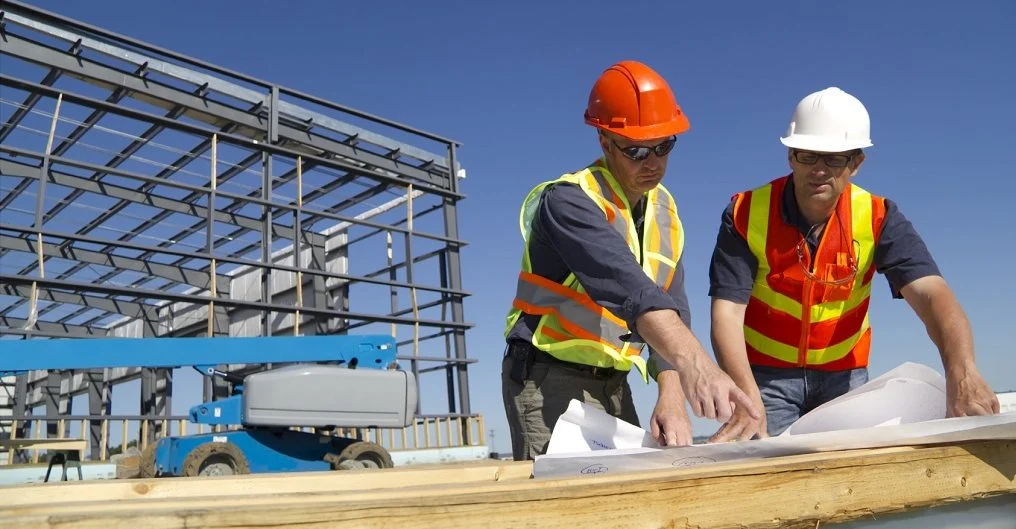In the competitive world of commercial construction projects, managing finances efficiently while delivering quality projects is crucial. For businesses like RJT Construction in Houston, mastering the art of cutting costs without compromising on quality stands as a key differentiator. This article explores various strategies and innovations that can help reduce expenses throughout the construction process, ensuring that projects not only stay within budget but also meet or exceed industry standards.
By focusing on both innovative and time-tested methods, construction firms can achieve significant cost savings while maintaining high quality in their commercial projects.
Understanding Commercial Construction Projects
Commercial construction encompasses a broad range of projects including offices, retail centers, warehouses, and other types of buildings dedicated to commercial use. These projects vary widely in scope, scale, and complexity, requiring a nuanced approach to management and execution.

Typically, commercial construction projects involve multiple stakeholders, stringent regulations, and tight timelines, all of which play a crucial role in determining the project’s overall success. Understanding these elements is essential for effective project execution and cost management.
The Construction Process and Its Costs
A standard commercial construction project follows a structured process from conception through completion. This process includes several critical stages: planning, design, procurement, construction, and commissioning. Each stage involves distinct costs such as labor, materials, equipment, and administrative expenses.
Labor costs often represent a significant portion of the budget, influenced by the project’s size and complexity, as well as the skills needed from the workforce. Material costs can also fluctuate based on market conditions and the quality standards required for the project. Managing these costs effectively is vital for keeping the project within budget and ensuring financial success.
Strategic Cost Saving Measures in Construction
In commercial construction, strategic cost saving measures are essential to maintain profitability while ensuring project quality. Effective planning and construction management are key pillars in this endeavor. Planning begins with a detailed project scope and a realistic budget, which help in anticipating and managing potential financial overruns. Adopting construction management practices, such as phased construction and just-in-time procurement, can significantly reduce wasted resources and minimize storage costs.
Moreover, integrating advanced construction management software helps streamline project tracking, workforce management, and material procurement, all crucial for staying within budget. These tools also enhance communication between stakeholders, ensuring that everyone is aligned with the project goals and budget constraints.
Thus, by combining thorough planning with robust construction management, firms can effectively cut costs without sacrificing the quality of the final construction.
Value Engineering and Project Management
Value engineering is a systematic method used to improve the value of goods or services by using an examination of function. In the context of construction, this approach aims to optimize the project, not by merely cutting costs, but by finding solutions that reduce project expenses while enhancing performance and quality.
Value engineering involves critically examining all aspects of a construction project, including materials, equipment, techniques, and even the design itself, to see where cost-effective alternatives can be employed without degrading quality.
Project managers play a crucial role in this process, as they oversee the implementation of these cost-saving measures while ensuring that the project adheres to its defined standards and outcomes. Their expertise in project coordination and budget management ensures that every dollar spent adds value to the project, enhancing cost-effectiveness without compromising on essential quality or functionality.
Leveraging Technology for Efficiency
The integration of technology in commercial construction is revolutionizing how projects are managed and executed, leading to substantial cost savings. Construction management software is pivotal in this transformation, providing real-time data on project progress, resource allocation, and budget management, which helps in making informed decisions quickly and efficiently. Furthermore, the use of artificial intelligence (AI) in predictive analytics can forecast project delays or budget overruns, allowing for preemptive measures to be taken.
Wearable monitoring devices also contribute significantly to reducing costs by enhancing worker safety and reducing accident-related delays and insurance claims. These technologies not only streamline project management tasks but also introduce a level of precision and efficiency that traditional methods cannot match, thereby reducing overall project costs.
Effective Use of Materials
Optimizing material use is a fundamental strategy for cost reduction in commercial construction. Utilizing existing materials and incorporating recycled aluminum, for example, can substantially lower material costs. These practices not only cut down on expenses but also support sustainability in the construction industry.

Material selection plays a critical role in budget management. Choosing the right materials that offer durability and cost-effectiveness without compromising quality can lead to significant savings. Moreover, strategic material procurement, such as buying in bulk or choosing local suppliers, can further reduce costs associated with logistics and storage, making efficient material usage a cornerstone of cost-effective commercial construction.
Planning and Design Optimization
The design phase of a commercial construction project sets the foundation for cost efficiency and project success. Meticulous planning can significantly mitigate the risk of unexpected expenses that often derail projects. During this critical phase, the utilization of design consultants and a skilled design team can provide immense value.
These professionals ensure that every aspect of the project is optimized for efficiency, from the choice of materials to the site layout. Their expertise allows for the anticipation of potential challenges and the incorporation of solutions in the design, which prevents costly modifications during construction.
Cost-Effective Construction Techniques
Modern construction methods such as prefabrication and modular construction have revolutionized the building process, offering numerous advantages in terms of cost efficiency. These techniques involve assembling components in a controlled factory setting, which not only speeds up the construction process but also significantly reduces waste and labor costs.
Prefabrication and modular construction also provide higher precision and better quality control, which can lead to fewer costly errors and reworks on site.
Financial Planning and Cost Control
Effective financial planning and rigorous cost control are essential to maintaining the budget integrity of any commercial construction project. Implementing a detailed financial plan that encompasses all aspects of the project—from initial estimates to final costs—is crucial. Leveraging tax incentives can provide substantial savings, enhancing the financial viability of projects.
Additionally, securing competitive bids through a transparent bidding process ensures that costs are kept in check without compromising on quality. These strategies collectively help in managing both project cost and overall project cost effectively.
Avoiding and Managing Potential Budget Overruns
To avoid potential budget overruns, it is imperative to implement robust monitoring techniques and maintain clear communication across all project teams. Regular financial audits and progress reviews allow for the early detection of any deviations from the budget, enabling timely corrective actions.

Setting clear lines of accountability ensures that all team members understand their responsibilities and the financial implications of their decisions. These practices are key to maintaining control over the budget and ensuring the financial success of construction projects.
Optimizing Labor and Supervisory Tasks
Balancing the use of experienced workers with cost-effective labor solutions is critical in commercial construction. Experienced workers bring invaluable skills and insights that can prevent costly mistakes and ensure high-quality outcomes, while newer laborers can be more cost-effective and trained for specific tasks to optimize budget allocation.

The role of supervisory tasks is crucial in this balance, as supervisors ensure that all workers, regardless of experience level, are performing efficiently and to the required standards. Effective supervision helps in maintaining the quality and efficiency of the project, minimizing delays and the potential for expensive errors.
Achieving Significant Cost Savings in Commercial Construction
Achieving significant cost savings in commercial construction requires a multifaceted approach that combines strategic planning, advanced technology, and efficient resource management. By optimizing design and planning phases, leveraging modern construction methods such as prefabrication, and utilizing cutting-edge technologies like construction management software and AI, companies can markedly reduce costs.
Furthermore, effective financial planning, careful material selection, and efficient labor management play pivotal roles in staying within budget. Incorporating effective budgeting tips is essential for construction firms aiming to strategically control expenditures. With these strategies, construction firms can successfully cut costs without compromising the quality and integrity of their commercial projects, ensuring both profitability and customer satisfaction in the long run.
The Key to Minimizing Resources and Maximizing Output
Planning Ahead for Reduced Maintenance and Energy Usage
Effective project management begins with meticulous planning ahead to ensure that every phase of the construction project is streamlined for efficiency. By designing buildings to require the bare minimum in maintenance, companies can significantly lower long-term costs.
Additionally, incorporating energy-efficient materials and construction methods from the start can drastically reduce the amount of energy used, leading to lower operating costs and a smaller environmental footprint.
Optimizing Work Schedules and Material Use
Crafting optimized work schedules plays a key role in managing the labor force efficiently, ensuring that the right team is in place at the right time to maximize productivity without overstaffing. By carefully planning the use of materials and labor, construction projects can achieve quality results without excess spending or waste. This not only aligns with the best interest of the client by keeping costs down but also promotes a more sustainable approach to construction.




